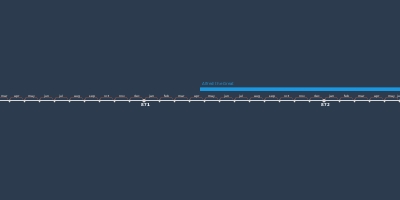Protestant Reformation (dec 22, 1517 – feb 12, 1648)
Description:
It is usually considered to have started with the publication of the Ninety-five Theses by Martin Luther in 1517 and lasted until the end of the Thirty Years' War in 1648. It led to the division of Western Christianity into different confessions (Catholic, Lutheran, Reformed, Anglican, Anabaptist, Unitarian, etc.). Although there had been earlier attempts to reform the Catholic Church – such as those of Jan Hus, Peter Waldo, John Wycliffe, and Girolamo Savonarola – Luther is widely acknowledged to have started the Reformation with the Ninety-five Theses. Luther began by criticising the sale of indulgences, insisting that the Pope had no authority over purgatory and that the Catholic doctrine of the merits of the saints had no foundation in the Bible. The Reformation incorporated doctrinal changes such as a complete reliance on Scripture as the only source of proper belief (sola scriptura) and the belief that faith in Jesus, and not good works, is the only way to obtain God's pardon for sin (sola fide). The core motivation behind these changes was theological, though many other factors played a part, including the rise of nationalism, the Western Schism that eroded loyalty to the Papacy, the perceived corruption of the Roman Curia, the impact of humanism, and the new learning of the Renaissance that questioned much traditional thought. The initial movement in Germany diversified, and other reformers arose independently of Luther. The groundwork of the Reformation was developed by three major reformers: Luther in Wittenberg, Zwingli in Zürich and Calvin in Geneva. The spread of Gutenberg's printing press provided the means for the rapid dissemination of religious materials in the vernacular. Lutheran churches were founded in Germany, the Baltics and Scandinavia, and Reformed ones in Switzerland, Hungary, France, the Netherlands and Scotland. The movement influenced the Church of England after 1547, under Edward VI and Elizabeth I, although the English Reformation had begun under Henry VIII in 1534. The Catholic Church responded with a Counter-Reformation, initiated by the Council of Trent in 1545, and a new order, the Jesuits, founded in 1540. Northern Europe, with the exception of most of Ireland, came under the influence of Protestantism. Southern Europe remained Catholic, except Greece, which remained predominantly Eastern Orthodox, as did Eastern European countries of Bulgaria, Romania, Russia, Ukraine and Yugoslavia. Central Europe became a site of a fierce conflict that culminated in the Thirty Years' War.Added to timeline:
Date:
dec 22, 1517
feb 12, 1648
~ 130 years
